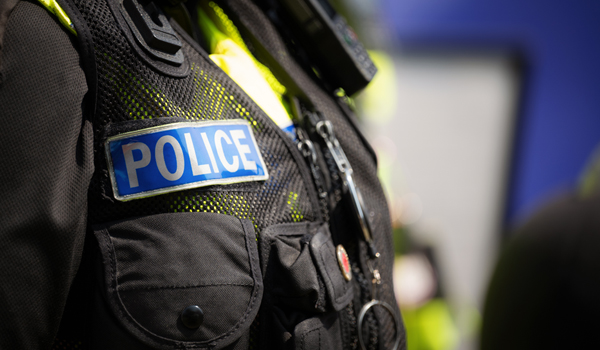Lincolnshire Police to use ‘digital twins’ of officers to drive down work-related injuries
Police officers in Lincolnshire will be the first in the UK to have AI-powered ‘digital twins’ created to predict, prevent and treat injuries sustained from policing.
Introduced in June this year as part of the service’s occupational health offering, the technology will help more than 2,200 police officers and staff avoid work-related injuries and improve their fitness, using tailored clinical physiotherapy recommendations provided by the personal digital models.
Musculoskeletal conditions, responsible for 15.5 per cent of all UK sickness absence and 7.8 million lost work‑days last year, already keep 5,121 police officers on recuperative duties and a further 3,055 on long‑term sick leave nationwide.
Internal records show the most common injuries in the Lincolnshire force in the past year were lumbar, neck and knee complaints, predominantly affecting frontline officers.
EQL’s digital musculoskeletal (MSK) platform, Phio™, produces virtual models of both individual officers and groups, such as response teams or crime investigation units.
Each model uses data from multiple sources – including information on muscles, bones, and joints as well as officer roles, levels of physical activity, health progress, injury recovery, and where possible, data from smart or wearable devices worn by officers – in order to predict the most likely injury to a police officer and provide instant or preventative medical and physio treatment through an app called Phio.
Helen Mumby, health and care lead at Lincolnshire Police, said: “The health and fitness of our officers is paramount. Policing is physically demanding, and injuries on the frontline are, unfortunately, all too common.
“By introducing EQL’s virtual digital twin technology and physiotherapy platform, we can take a proactive approach to injury prevention and recovery. This physiotherapy service is aimed at helping officers stay fit, recover faster, and remain ready to serve the public.”
Lincolnshire is the first police force in the UK to roll out this type of technology to every single officer organisation‑wide. It will use the data to manage health in the workforce more efficiently, reducing costs associated with physiotherapy appointments and sick leave, while helping officers avoid injuries and health issues.
Pete Grinbergs, chief medical officer and co-founder at EQL , said: “This partnership is an exciting milestone as we work to create the first-ever digital twins for police officers – a step that could transform health outcomes in the force and demonstrate the innovation possible in the public sector.
“We’ve built the foundations of the digital twin architecture, and as we progress with Lincolnshire Police, every new data point will strengthen the platform, creating a powerful AI model that learns, adapts, and delivers ever-greater value over time.”
AI analyses the data sources to spot early signs of potential problems, such as strain on a joint or inefficient movement patterns, and can recommend adjustments before pain begins.
For officers recovering from injury or surgery, the digital twin tracks individual progress, informing EQL physiotherapists about how well the person is recovering and responding to treatment and alerts when rehabilitation plans need fine-tuning or progressing.
The platform, Phio, will provide the most appropriate medical information and personalised physiotherapy treatment programmes for police officers, covering common occupational MSK risks and early‑intervention strategies targeting high‑risk groups, such as officers who routinely carry equipment and wear body armour.
Officers can complete a clinically validated treatment assessment on any device as soon as muscular pain or injury begins, without having to wait to see a GP. More than 90 per cent of officers receive a personalised care plan within 24 hours.
Integrating AI into occupational health supports the NHS Long Term Plan and the Government’s drive for innovation in public services. This partnership, and its ongoing evaluation, will generate valuable evidence on how digital twins can prevent health issues and tackle major burdens such as musculoskeletal conditions, improving lives while reducing costs to the UK economy.


